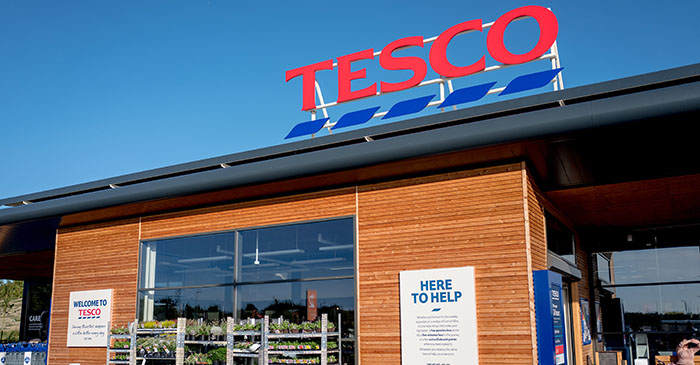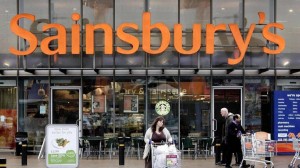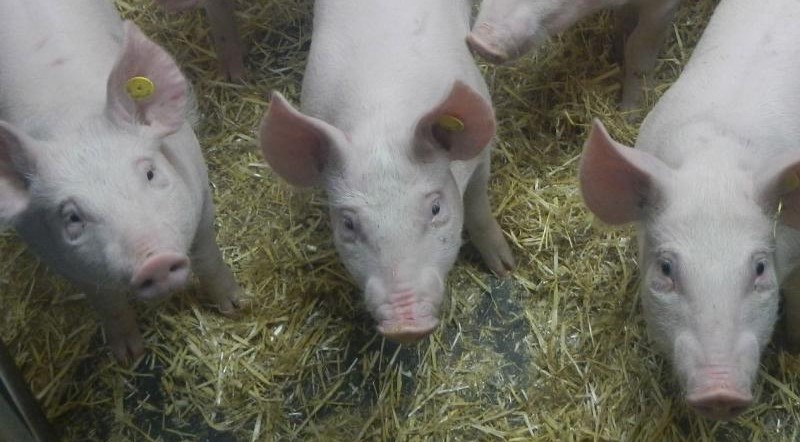There have been some welcome headline announcements of late from retailers on pig prices. But some are doing more than others. In the latest issue of Pig World, with the help of the NPA’s Zoe Davies, ALISTAIR DRIVER analyses their respective contributions
Over the past few weeks, four of the big UK retailers have announced significant investments in the pig price to support beleaguered pig producers.
The headline figures announced by Sainsbury’s, Waitrose, Tesco and Co-op, at face value, amount to around £50m, while other retailers are known to be upping payments, without making it public.
The pig price, despite artificially high supplies of pigs as processors work through the backlog and ‘soft demand’, continues to rise, with the SPP topping 180p/kg for the first time ever during the week ending June 4, giving producers some immediate relief and belief in the future.
But, while retail support is welcome, pig price increases are barely keeping pace with soaring costs. For context, pig producers lost, on average, a staggering £58/head during the first quarter of this year, taking overall industry losses since October 2020 to an estimated £500m, according to AHDB.
This was based on estimated average costs of 207p/kg. As wheat prices have soared further since the start of the Ukraine war and energy prices go higher and higher, AHDB estimated that average COP had reached 240p/kg in May.
“The bottom line is that, while all retail support is welcome, it is still nowhere near enough, and some are certainly doing more than others,” NPA chief executive Zoe Davies said.
Based on public statements and what else we know, here we look at what each of the big retailers is doing to support the British pig sector, particularly in relation to their market share.
‘Fantastic support’
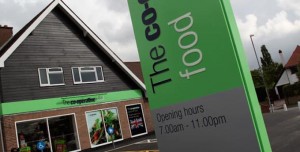 Co-op
Co-op
- Retail market share (Kantar data) – 6%
- Pig sector investment – £19m.
The Co-op announced on May 21 that it was spending £19 million to help pig producers keep pace with soaring costs, reflecting the introduction of a new pricing model linking the farmer price to the cost of production, rather than the market price, or SPP.
It will be reviewed monthly to ensure that the price reflects the costs farmers are facing. The retailer, which moved to 100% British-sourced pork five years ago, pointed out that, despite its market share of 6%, its support outstrips the big four retailers combined, with their market share of almost 70%
The Co-op is urging other retailers to ‘go the whole hog’ and support the UK pig farming sector by shifting their sourcing policies to British-produced pork.
Matt Hood, Co-MD, Co-op Food, said: “Some of the support for the sector is too little but it’s not too late for supermarkets to do their bit to help more British farmers.”
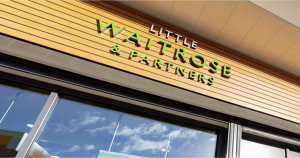 Waitrose
Waitrose
- Retail share – 4.8%
- Pig sector investment – £16m.
In early May, Waitrose announced a further support package for its pig farmers worth up to £16m. The retailer said the move means it will cover the full cost of production, including labour, feed, and fuel.
Waitrose’s executive director, James Bailey, said: “Farmers are the backbone of Britain, keeping food on our tables during our country’s hour of need through a pandemic. But now, they need our help.”
He also called on the ‘entire food industry and the British public to get behind us. If we don’t stand united in supporting UK pork farmers and act soon, many businesses will be lost.”
Zoe’s verdict: “this is fantastic support from both retailers, who also go to great lengths to source British pork for their customers. Based on market share, they are the only ones investing the amount needed to help their suppliers cover their costs. We welcome their full recognition of the need to move away from market prices and reflect the COP in pricing models in these unprecedented times and fully endorse their calls for other retailers to follow suit.”
‘Need to see more’
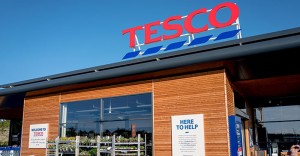 Tesco
Tesco
- Market share – 27%
- Pig sector investment – £6.6m
Tesco had been among the slowest to respond to pig industry calls for price rises, prompting NPA chairman Rob Mutimer to write an open letter to the retailer’s chief executive, Ken Murphy, in early May, calling for urgent action and noting its power to make a difference and set an example, as the country’s biggest retailer.
Following a wave of publicity that followed, 11 days later Tesco duly announced ‘£10 million in extra funding for UK pig farmers’. While £3.4m was money already paid since March, Tesco said its ‘accelerated and enhanced payment plan’ will see its suppliers increase payments to farmers by £6.6m until August.
It pledged to work with its suppliers to ensure the investment gets passed to farmers ‘as quickly as possible’, and will review pricing on a more frequent basis, ‘providing more flexibility for farmers when market prices change’.
However, with some farmers stressing that they haven’t seen any of the benefits of this yet, Tesco has not made it clear how this extra money is being paid and, whether, for example, it simply reflects higher market prices or is linked to other mechanisms. Neither is it clear how Tesco will ensure the money gets to farmers. Follow-up queries on these points yielded no further information.
Tesco said it had taken an extra 32,000 pigs since January, and plans to take a further 22,000 in the months ahead, while other initiatives include adding more fresh British pork products in store and launching Karro’s ‘I Love’ British pork products, which see 5p per pack passed on to farmers.
Sainsbury’s
In late-April, Sainsbury’s announced additional support of up to £2.8m, giving its producers the opportunity to align all pigs supplied to it, including those not currently part of its pork development group, to a fixed price for 12 weeks from mid-March to early June.
Sainsbury’s said it had paid above market price for fresh pork since September 2020, bringing its overall investment in its pricing mechanism to £5m.
 Zoe’s verdict: “The support from Sainsbury’s and Tesco is welcome. The Sainsbury’s announcement is clearer than Tesco’s, highlighting that it is breaking away from market prices to reflect producer COP. We would like to see more clarity from Tesco in terms of how the money is supporting prices and how it is getting to producers, although it is clearly trying harder to help than it has before.
Zoe’s verdict: “The support from Sainsbury’s and Tesco is welcome. The Sainsbury’s announcement is clearer than Tesco’s, highlighting that it is breaking away from market prices to reflect producer COP. We would like to see more clarity from Tesco in terms of how the money is supporting prices and how it is getting to producers, although it is clearly trying harder to help than it has before.
“What is clear, however, is that relative to their market share, and put next to the Co-op and Waitrose announcements, we need to see more from both – and soon.”
‘Simply not enough’
At the time of writing, none of the other big retailers had made public announcements on pig prices. We asked each to explain what they are doing.
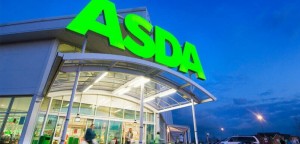 Asda
Asda
- Market share – 14%
Asda, which sources a relatively small amount of British pork compared with its competitors, is known to be investing additional funds in the pig price, but details are patchy.
A spokesperson said: “Asda are committed to continuously supporting the British pork industry, which is why we have increased the volume of British product that we buy.
“We are aware of the current challenges in the pork industry and recently began sourcing an extra 50 tonnes of British pork per week to help tackle the excess volumes currently on the market. We will continue to look at what support we can offer at this time while also ensuring that customers can continue to access a good choice of pork products to suit all budgets in our stores.”
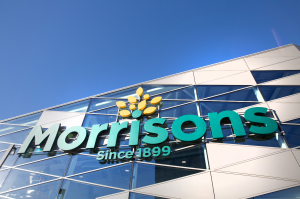 Morrisons
Morrisons
- Market share – 9.5%
At one stage, Morrisons, which sources its pigs from wholly-owned subsidiary Woodhead Bros, looked like it was leading the way when it increased its weekly contribution price by 30p/kg to 180p/kg back in March.
But, although its contribution price has gone up slightly since then, little has happened since. Its support is hard to gauge, as the contribution price is only a part of what the producer receives, depending on contract arrangements.
Morrisons referred us to an old statement from when it raised its contribution price.
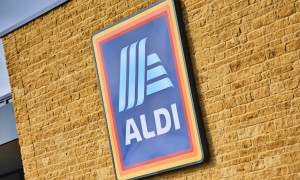 Aldi, Lidl
Aldi, Lidl
- Aldi market share – 8.8%
- Lidl – 6.6%
Aldi is understood to be making some efforts to get more money to producers, but there is minimal information on what it and Lidl, if anything, are doing. Neither responded to Pig World’s queries.
Zoe verdict: “We would like to see much more from these four retailers. Whatever they are doing to help – and it is not clear in these cases – it is simply not enough given the catastrophic circumstances facing producers.”
M&S
- Market share – 3.2%
While M&S is a relatively small player in the grocery market, it is generally a good supporter of British pork producers, and, we understand, has been taking steps to ensure its pig prices reflect costs of production.
Processor perspective – supply chain and Government need to do more
Leading pork processors have called for the supply chain and Government to do more to back British pork producers.
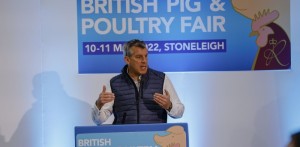 Speaking at May’s British Pig & Poultry Fair, Karro CEO Steve Ellis was again outspoken in his calls for the supply chain to increase the pig price. He stressed that as the backlog eventually goes and the impact of a reduced sow herd feeds through, the current surplus of pigs could rapidly become a shortage.
Speaking at May’s British Pig & Poultry Fair, Karro CEO Steve Ellis was again outspoken in his calls for the supply chain to increase the pig price. He stressed that as the backlog eventually goes and the impact of a reduced sow herd feeds through, the current surplus of pigs could rapidly become a shortage.
He warned retailers that, with producers having suffered ‘unprecedented’ Q1 losses of £60/pig and costs soaring higher since then, this shortage will become even more stark unless retailers get money to producers quickly to get the pig price well beyond £2/kg.
“Firstly, we have to tackle the surplus and sell more UK pork than EU pork through retailers – otherwise there is no way the price can rise,” said Mr Ellis
“We need immediately is fair pricing throughout the supply chain. We have to look at the consequences of not doing this, and it has to come from retailer, who need to pay money today to keep the pig industry in the UK sustainable.
“I don’t believe it’s in anyone’s interests to seek short-term commercial benefits. The long-term commercial benefits of paying a fair price price for pork will be much higher.”
A Pilgrim’s spokesman said it had been working closely with retail customers to provide additional support for its farmers and, in recent, weeks has secured new arrangements with Waitrose and Co-op across its own outdoor bred operations and supply chain ‘that will help ensure a fair price for these farmers’.
“These agreements will be updated regularly, reflecting changes in the cost of production, and build on long-standing commitments to UK higher-welfare farming. We also welcome the support shown by Tesco, Aldi and Lidl in recognising and taking steps to address the unprecedented increased in costs being experienced by our farmers,” he said.
“However, we cannot overcome these challenges alone, and we encourage all stakeholders throughout the supply chain and in government to do all they can to ensure a sustainable future for British farmers and the UK pork sector.
“This extends to supporting industry in overcoming the ongoing labour shortages and capitalising on the export opportunities that exist for high quality British products, including continuing to press for the reinstatement of export licences to China.

Announcing its 2021-22 financial results, Cranswick said it has changed its pig pricing structures in light of the recent Ukraine-drive feed cost spikes. “The sharp increase in feed prices incurred by producers, alongside high levels of UK cost inflation, has accelerated the need to introduce new compensation mechanisms for farmers,” it said.
“These measures mark a short-term move away from prices linked to the SPP as processors work with retailers to establish greater use of cost of production models.”
The processor’s chief executive Adam Couch said he was ‘disappointed that the Government’s response to our sector’s calls for support has been so muted’. “More needs to be done by Government in the coming months to ensure that we have a viable long-term pig farming industry,” he said.
Producer views – some customers are better than others
We asked various producers, representing different sizes and systems, whether they were seeing the benefits of the price rises yet and, if so, whether it was closing the gap on rising costs.
The responses were mixed – but all agreed that what we’ve seen so far in terms of price rises is nowhere near enough.
We are still losing £26/pig
“Broadly, we had made some inroads into our backlog but have had loads cancelled from more than one customer this week to set us back again.
“We are seeing some of the benefit of higher prices coming through, although some customers are notably better than others. Despite these improvements, even on our best paying contract we are still losing £26 per pig.”
We have seen nothing
“We have seen nothing yet – nothing is coming through to the farmer unless you are in dedicated supply chains like Waitrose and M&S.
“Costs are just going up and up, and, while some supermarkets have generated good headlines for themselves, it is just nowhere near enough. Lots of pig producers are still just hanging on – this has been going on for nearly a year now. There’s not much more they can take.
“The message has to be that we need more, and the supermarkets need to show how the money is getting it through to the farmer, and make sure it gets there quickly.”
More support is desperately needed
“The benefit of having named producers in an active development group has been key to Sainsbury’s being able to make sure that their producers benefit in a transparent manner. Their support has been substantial and valued for a defined period.
“In contrast, the Tesco offer is very small relative to market share, and, without a development group, there is no mechanism to make sure the money goes directly to producers in a transparent manner, or one that makes any substantive difference to reducing losses.
“Costs have moved on again and more support is desperately needed.”
The top-ups should contribute to the SPP data
“My processor is sharing the benefit of a particular retailer’s top up contribution pro rata among eligible suppliers, which is the only fair way but doesn’t really make a massive difference.
“I would prefer that top-ups were done in a way that positively affected the SPP. These particular ones, and those in high-profile top ups with other retailers, being RSPCA Assured and therefore deemed ‘premium’, do not contribute to the SPP data. I think that they should.”
They need to stop being so greedy
The retailers are at least doing something now, but still not enough from what I can gather! At the end of the day they need to stop being so greedy, looking to maintain their percentage growth/percentage margins and realise they can still make plenty of money, enough to reinvest if they just shifted a bit more (each processor and retailer) down to the farmer.
“Whilst I’m sure they both want to keep seeing exponential growth, when it comes to farmers not even having the ability to feed their pigs, then surely some corporate responsibility has to come in to play? Yes, it would be nice if Government intervened, but if processors and retailers just figured this out for themselves then it wouldn’t need to step in!”




